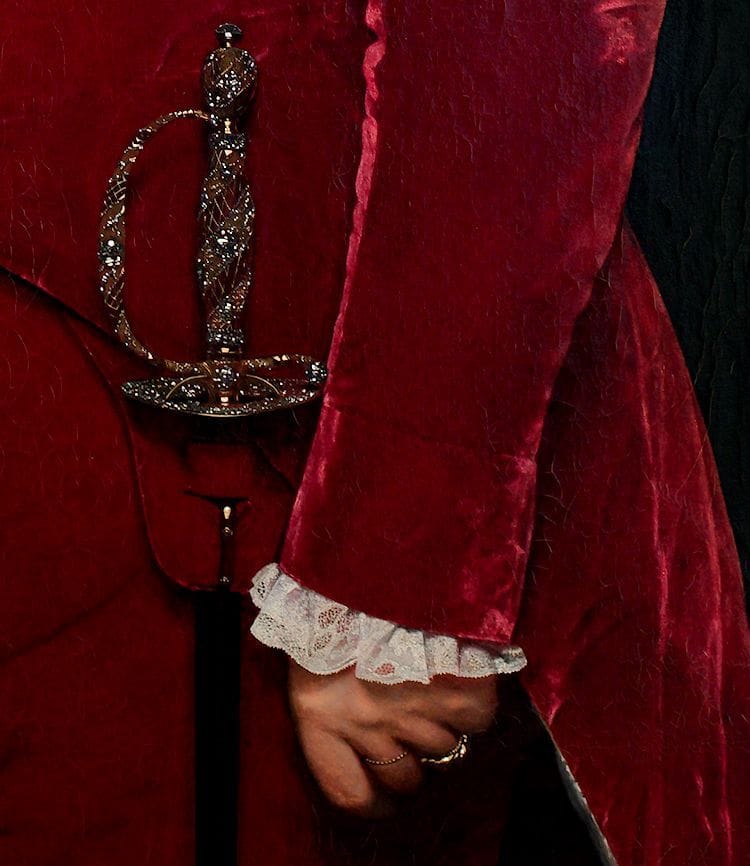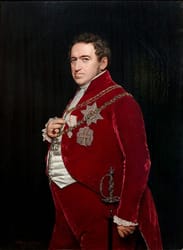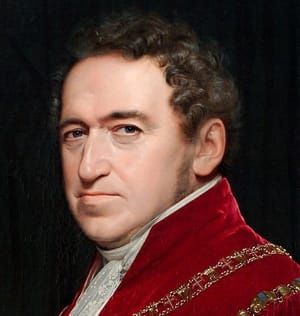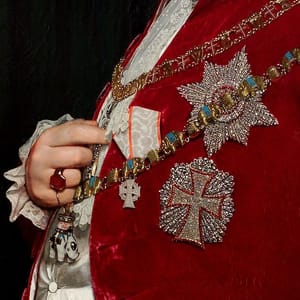

King Christian VIII, 1845
Johan Vilhelm Gertner
Christian VIII (18 September 1786, Christiansborg Palace, Copenhagen – 20 January 1848, Amalienborg Palace, Copenhagen), King of Denmark from 1839 to 1848 and, as Christian Frederik, King of Norway in 1814. He was given a thorough and wide-ranging education with exposure to the artists and scientists who were attached to the court of his father, the future Frederick VI. Talented, amiable, and handsome, he was very popular in Copenhagen. He first married his cousin Duchess Charlotte Frederica of Mecklenburg-Schwerin in 1806. Their first-born son was born and died the following year, but their second son would succeed his father as Frederik VII. The marriage was dissolved by divorce in 1810 after Charlotte Frederica was accused of adultery. He married his second wife, Princess Caroline Amalie of Schleswig-Holstein-Sonderburg-Augustenburg, five years later. The couple was childless and lived in comparative retirement as leaders of the literary and scientific society of Copenhagen until Christian ascended the throne of Denmark. Christian also had ten extramarital children, for whom he carefully provided.
Denmark and Norway were a united kingdom for almost 300 years, but in 1814, in the confusion and turmoil of the waning of Napoléon's domination of Europe, even though Christian's father, a great ally of Napoléon, now sat on the throne of Denmark, Cristian was elected King of Norway. Which he remained for not quite three months. (After his abdication and return to Denmark, Norway joined with Sweden in a joint kingdom which lasted until 1905, when Norway became independent - and elected a Danish prince as their new king.) On his ascension to the throne of Denmark 25 years later, the Liberal party had high hopes for the new régime. In the past, Christian had displayed clearly liberal sympathies, but now he changed direction and firmly resisted the demands of the advocates of a constitutional régime. He proved a hesitant ruler who did his best to ignore the political rumblings that would erupt all over Europe in the year of his death. Christian did have to act decisively to avert a succession crisis - his only legitimate son, the future Frederik VII, was married three times, had produced no legitimate issue, and was now unlikely to beget heirs - so, eventually, with the approval of Europe's Great Powers, in 1852 a niece of Christian's and her husband were chosen as the eventual successors to the Danish throne. But the King, himself, had died four years before of blood poisoning at the age of 61.
(http://godsandfoolishgrandeur.blogspot.nl/2016/09/consecutive-danish-kings-christian-viii.html)
Uploaded on Jul 6, 2017 by Suzan Hamer



